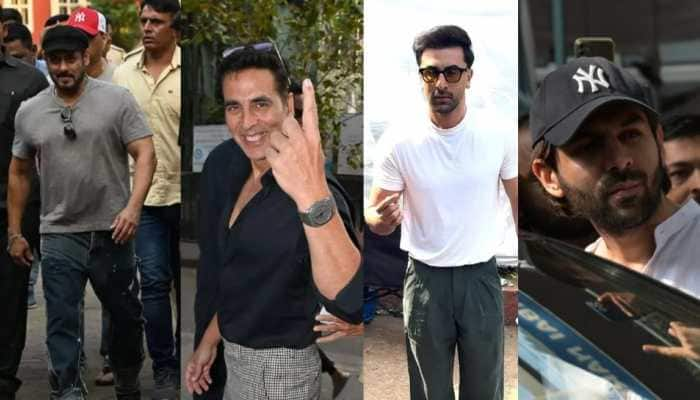The voices from the city of Chennai
Chennai-born Bharatanatyam dancer and writer Tulsi Badrinath whose roots lie in Uttar Pradesh has come out with a new book, which narrates stories of people who call the southern metropolis home.
Trending Photos
)
New Delhi: Chennai-born Bharatanatyam dancer and writer Tulsi Badrinath whose roots lie in Uttar Pradesh has come out with a new book, which narrates stories of people who call the southern metropolis home.
Dalit writer and activist P Sivakami, superstar Vikram and karate-expert K Sehsardri as well as wildlife expert and photographer M Krishnan and his wife are among people featured in her book "Madras, Chennai and the Self - Conversations with the City."
Born to parents who were brought up in Uttar Pradesh, Tulsi who has made Chennai her home has interviewed an eclectic range of 12 people.
"In deciding on whom to interview, I chose people who live in different parts of the city... I sought those who in some way brought out an aspect of the city," says Tulsi.
One of her first interview profiles is with a Hindu priest K Seshadri who owns a black belt in karate and who seemed to exemplify for the author, the people of the city who held firm to tradition but were also in step with modern times. Seshadri pursued his contrary even forbidden passion while simultaneously adhering to a life of orthdox and scrupulous ritual.
When he can no longer serve in the temple, Seshadri plans to shift to his home. "I will continue to conduct pujas and teach karate. If Perumal gives me ten rupees, I am happy," he says. Seshadri provides Tulsi an opportunity to feature the various ancient temples that have been in the city for centuries.
Next on the series is the story of dalit woman IAS officer who made her journey from a village in interior Tamil Nadu, Preambalur near Trichy to the fabled city 'Patanam' or Madras.
Tulsi writes about the deeply embedded dynamics of caste in the city. "In clothing, language, register, food, attitudes and traditions they are visible, reinforced, but these markers are not easily apparent to a tourist or temporary visitor to the city. And they are but a culmination of centuries of rigid demarcation between Brahmins and non-Brahmins, 'upper' and 'lower' castes," says Tulsi.
In the chapter on Vikram, the author explores the relationship of the city that worships its film stars and talks to the superstar about the spaces in the city to ask whether he can freely access certain places, do certain things or has the price of fame been the restriction of free movement.
Temples have been built for MG Ramachandran and Khushboo, fans of Rajnikant and Kamal Hassan routinely perform aarti, break coconuts and bathe posters of their latest releases with megalitres of milk in raucous celebration, people have voted artists from the world of films such as MGR, Karunanidhi and Jayalalitha to power- to become a film star is perhaps the dreams of its millions, says Tulsi.
In her conversation with gynecologist Uma Ram, Tulsi writes about the deep entrenched superstitions in the city.
In the "Inheriting history" chapter Tulsi speaks to the Prince of Arcot, Ali Hajj Nawab Ghulam Mohammad Abdul Ali Khan Bahadur. Arcot was so central to the story of the British consolidating their power from Fort St George, that when the first railway station of south India was opened in Madras in 1856 the train ran from Royapuram to Arcot.
The author speaks with civil engineer A Faizur Rahman, from North Chennai, who speaks of a childhood where "the windows of homes were all left open." For some Chennai is a geographical place that sustains their life; for others, a prison to escape from. The city has a long memory though, says Tulsi. "Many visiting NRIs have remarked on the pleasure of being recognised by the owner of the local grocery store years after they left."
The book notes the house and life of M Krishnan one of the country's prominent naturalist and his wife Indumati Krishnan. Krishnan was one of the first friends Tulsi's IAS father made during the beginning of his stay in Chennai and the author writes that Perunkulam House or PH was the closest she had to a grandparent's home.
With a degree in English Literature from the Stella Maris College and an MBA from Ohio University, the 48-year-old Tulsi quit her job in a multinational bank to pursue her passion for writing and dance.
The current book is the fourth in a body of work on Chennai that includes two novels, "Meeting Lives" and "Man of a Thousand Chances," both long listed for the Man Asian Literary Prize and one of narrative non-fiction, "Master of Arts, A Life in Dance."
Stay informed on all the latest news, real-time breaking news updates, and follow all the important headlines in india news and world News on Zee News.
Live Tv







)
)
)
)
)
)
)
)
)
)
